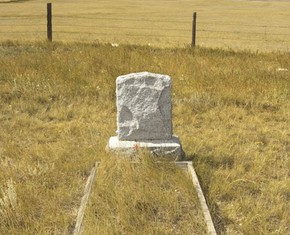The views expressed in our content reflect individual perspectives and do not represent the authoritative views of the Baha'i Faith.
Have you ever awakened early enough to witness the dawn of a new day? If so, you’ve experienced something both commonplace and miraculous, and you’ve traveled into the light of dawn.
What does the metaphor “into the light of dawn” mean? Well, for one, dawn happens regularly. We all experience the dawn-light, in one way or another, every day.
It can also be about continuation, especially when linked with the word “into” – somehow, we journey from night into day. That’s quite hopeful in an emotional sense, isn’t it?
But the dawn-light can also mean that during the night, a cloak of darkness settles over ideas and concepts that we don’t want to see. In the dawning light of day, all these things, whether literal or emotional, are brought to our attention, definitely and unavoidably, with all the harsh contours and sharp edges that might include.
RELATED: Aligning Your Heart and Mind
In some ways, then, “going into the light of the dawn” symbolizes an act of removing our securities: when the sun rises, we are confronted with the need to face things as they are.
Perhaps there’s a third emotional meaning, though – while it is still dark, we use artificial light sources to find our way around, to read, to explore. These lights might be limited in scope, or reliability – a flickering candle, perhaps, or a dim torch. These aids to see are unsure; they only help us see so far, or so much. As daylight strengthens, we’re gifted with the ability to perceive more distantly, more surely; to witness the world in all its splendor and plenitude. The glory of the emerging daylight outshines and renders unnecessary any puny light.
Baha’u’llah, in his mystical book The Hidden Words, poetically and profoundly links the dawning light with humility and the journey of the soul as he prescribes a spiritual way of being for all people:
Didst thou behold immortal sovereignty, thou wouldst strive to pass from this fleeting world. But to conceal the one from thee and to reveal the other is a mystery which none but the pure in heart can comprehend.
Perhaps, then, humility means that each one of us is not really fundamentally different from anyone else – no greater, certainly; nor more capable of knowing, or doing. So then our thoughts and reflections about who we are and what we do are commonplace: nothing out of the ordinary. That also makes humility relatable, doesn’t it?
To be humble also means accepting the existence of boundaries beyond which we do not know – and perhaps cannot know. Maybe humility means accepting that we do not suffice, that we are not capable of meeting the challenge of knowing everything about ourselves, or everything about the world.
Until the sun comes up, we’re blind.
The greatest artists, writers, and scientists know that kind of humility. They face the overpowering majesty of creation and embrace not knowing. They revel in it and want to explore it. Some of them, our most articulate authors, have metaphorically written about the dawning of a new day.
This beautiful yet challenging symmetry of humility juxtaposed with a metaphor of movement towards the dawn can be found in Shakespeare’s The Tempest, as just one example. In what most consider to be one of his final compositions, Shakespeare’s alter-ego character Prospero reflects on the approaching end of his works. He realizes that his “actors” “were all spirits” that “melted into thin air” – disappearing, as mist does in the light and heat of the morning sun.
The imaginary spectacle that he has weaved for the audience is “like the baseless fabric of this vision” – only a show, a daydream, a memory. All of it, “the cloud-capped towers, the gorgeous palaces, the solemn temples” – these glorious monuments to human skill, and labor, and money, and power, dissolve and fade away, including “the great globe itself,” a reference to the stage on which his creations strut.
RELATED: What are the Spiritual Attributes of an Artist?
Shakespeare, in the guise of Prospero, recognizes that his creations – made entirely of words, music, and flimsy stage props – will fade away, leaving not even a wisp of cloud. This humble admission of the limits of Shakespeare’s abilities, as well as the process of becoming detached from all that he has created, comes when he realizes the light of the candle he held to the world grows ever more insignificant with the approaching hour of dawn.
That metaphor – the coming of the dawn-light – symbolizes the emergence of a new Faith, one that suffuses the world and all the souls in it with the life-giving rays of the spiritual sun; and also symbolizes the journey of the individual soul. In the Baha’i writings, Baha’u’llah described it in these terms:
He, verily, hath willed for you that which is yet beyond your knowledge, but which shall be known to you when, after this fleeting life, your souls soar heavenwards and the trappings of your earthly joys are folded up.
















Comments
Sign in or create an account
Continue with Googleor